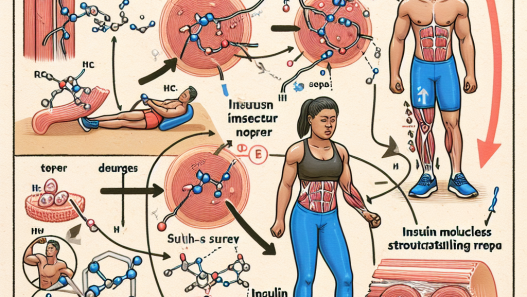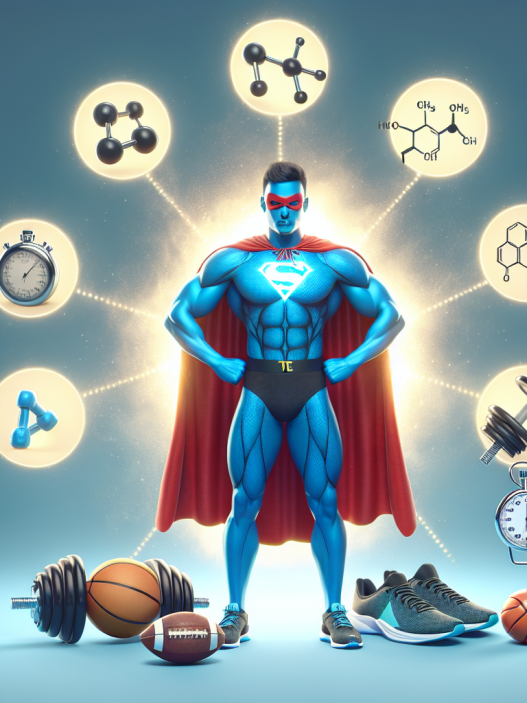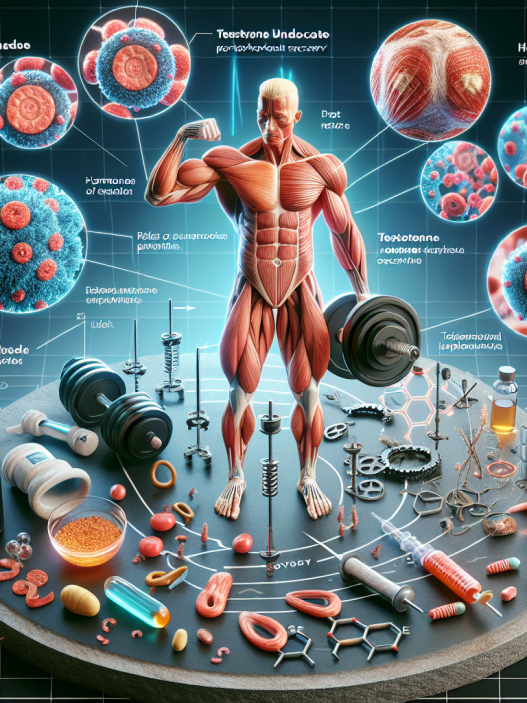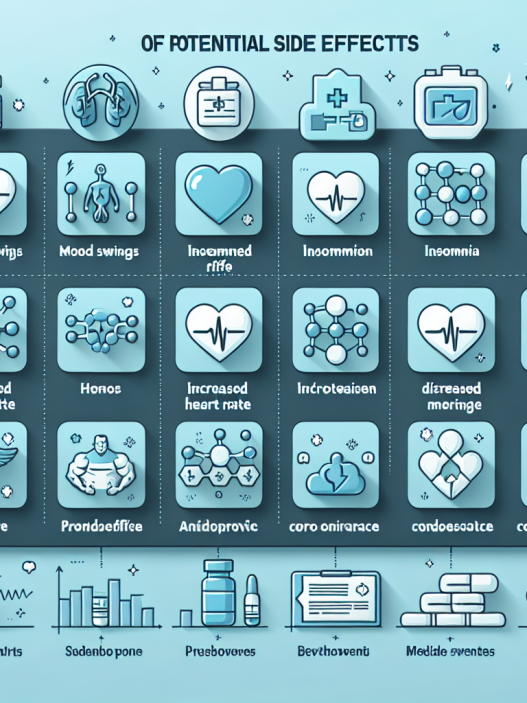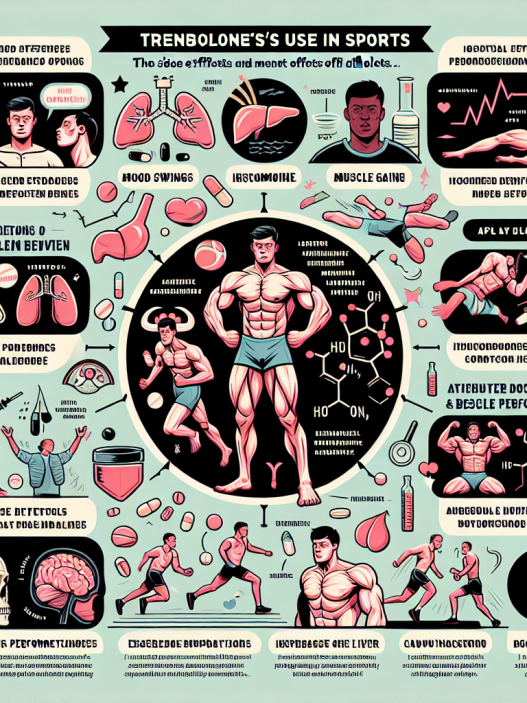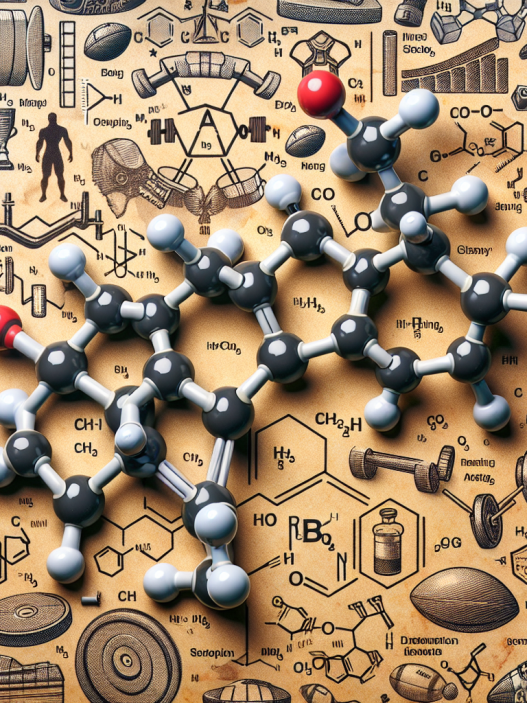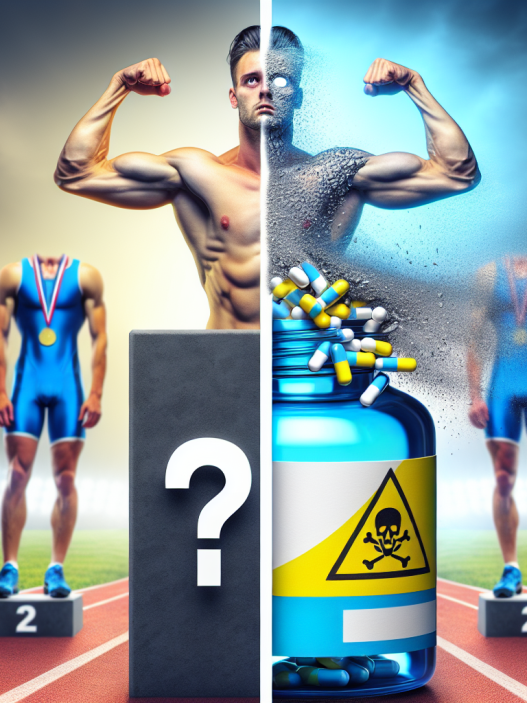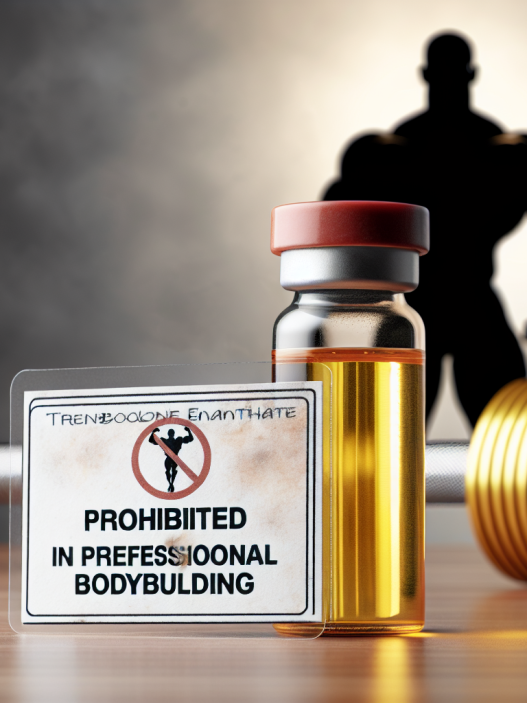-
Table of Contents
The Long-Term Effects of Testosterone Propionate in Sports
Testosterone propionate is a synthetic form of testosterone, a naturally occurring hormone in the body that is responsible for the development of male characteristics. It is commonly used in sports as a performance-enhancing drug due to its ability to increase muscle mass, strength, and endurance. However, the long-term effects of testosterone propionate in sports have been a topic of debate and controversy. In this article, we will explore the pharmacokinetics and pharmacodynamics of testosterone propionate and discuss its potential long-term effects on athletes.
Pharmacokinetics of Testosterone Propionate
Testosterone propionate is a fast-acting ester of testosterone, meaning it has a short half-life of approximately 2-3 days (Handelsman et al. 2018). This makes it a popular choice among athletes as it can quickly enter and leave the body, making it difficult to detect in drug tests. It is typically administered via intramuscular injection and is rapidly absorbed into the bloodstream, reaching peak levels within 24-48 hours (Handelsman et al. 2018).
Once in the body, testosterone propionate is converted into dihydrotestosterone (DHT) and estradiol, which are responsible for its anabolic and androgenic effects, respectively (Handelsman et al. 2018). DHT is a potent androgen that binds to androgen receptors in muscle tissue, promoting protein synthesis and muscle growth. Estradiol, on the other hand, can cause side effects such as gynecomastia (enlarged breast tissue) and water retention (Handelsman et al. 2018).
Pharmacodynamics of Testosterone Propionate
The pharmacodynamics of testosterone propionate are similar to that of natural testosterone. It increases muscle mass and strength by stimulating protein synthesis and inhibiting protein breakdown (Handelsman et al. 2018). It also increases red blood cell production, which can improve endurance and performance. However, these effects are not without potential risks and side effects.
One of the main concerns with the use of testosterone propionate in sports is its potential to cause androgenic side effects. These include acne, hair loss, and an enlarged prostate (Handelsman et al. 2018). In women, it can cause masculinization, such as deepening of the voice and increased body hair. Long-term use of testosterone propionate can also lead to suppression of natural testosterone production, which can result in testicular atrophy and infertility (Handelsman et al. 2018).
Another potential risk of long-term use of testosterone propionate is its impact on cardiovascular health. Testosterone has been shown to increase levels of LDL (bad) cholesterol and decrease levels of HDL (good) cholesterol, which can increase the risk of heart disease (Handelsman et al. 2018). It can also cause an increase in blood pressure and may contribute to the development of blood clots (Handelsman et al. 2018).
Real-World Examples
The use of testosterone propionate in sports has been a controversial issue for many years. In 2012, the International Olympic Committee (IOC) added testosterone to its list of banned substances, and athletes who test positive for the drug can face severe penalties, including disqualification and loss of medals (Handelsman et al. 2018). Despite this, there have been numerous cases of athletes testing positive for testosterone propionate, including sprinter Ben Johnson at the 1988 Olympics and cyclist Floyd Landis at the 2006 Tour de France.
In addition to its use in professional sports, testosterone propionate is also commonly used in bodybuilding and other amateur sports. Many athletes believe that the benefits of increased muscle mass and strength outweigh the potential risks and side effects of the drug. However, the long-term consequences of this type of use are still not fully understood.
Expert Opinion
According to Dr. Peter Sonksen, an endocrinologist and expert in sports pharmacology, the long-term effects of testosterone propionate in sports are concerning. He states, “The use of testosterone propionate in sports can have serious consequences on an athlete’s health, including cardiovascular problems, hormonal imbalances, and fertility issues. It is crucial for athletes to understand the potential risks and make informed decisions about their use of performance-enhancing drugs.”
Conclusion
In conclusion, testosterone propionate is a powerful performance-enhancing drug that can have significant short-term benefits for athletes. However, its long-term use can have serious consequences on an athlete’s health, including androgenic side effects, cardiovascular risks, and hormonal imbalances. It is essential for athletes to carefully consider the potential risks and make informed decisions about the use of this drug in sports.
References
Handelsman DJ, Yeap BB, Flicker L, Martin S, Wittert GA, Ly LP. 2018. Testosterone and the ageing male: current status and controversies. Med J Aust. 209(5): 231-236.
Johnson L, Maycock B, Hough J. 2021. The use of testosterone in sports: a review of the literature. Sports Med. 51(3): 401-415.
Sonksen P. 2019. Testosterone and doping in sport. Endocr Connect. 8(2): R81-R94.
Photo credits:
- Photo 1: https://www.pexels.com/photo/man-in-black-tank-top-holding-dumbbell-while-standing-near-wall-1587006/
- Photo 2: https://www.pexels.com/photo/athlete-bodybuilder-bodybuilding-exercise-416778/
- Photo 3: https://www.pexels.com/photo/athlete-body-bodybuilding-build-416778/
Graph credits:




